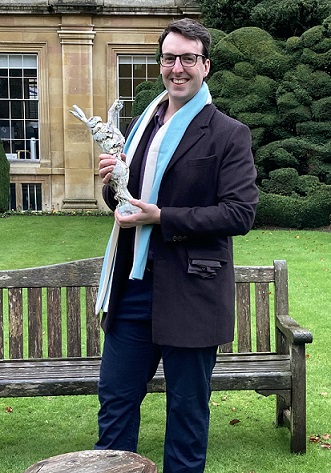Cruelty Free Beauty
- 4 signs you have low iron levels
- Zero Waste Beauty: Adopt a green routine with these sustainable products
- This eco-friendly beauty box is packed with refillable multi-taskers
- “I find myself using it even when I don’t need to!”
- Arctic-inspired natural skincare brand launches in the UK
- Green People launches beauty balm packaged in 100% biodegradable pot
- Lush launches same-day delivery service for its iconic handmade cosmetics
- “This cruelty-free tanning water gave me the confidence boost I needed”
- rho launches sustainable loungewear that gives back
- Rose & Caramel Raises Awareness For Women’s Self-Esteem & Mental Health With ‘I TAN FOR ME’ Campaign
- Couple launches entirely plant-based and refillable deodorant on Kickstarter
- View all
Eco Living
- Simple Hacks to Cut Your Food Waste with Gino D’Acampo
- Five Easy Ways to Reduce Food Waste
- Eat these foods to boost your mood
- Upgrade Your Cheese Toastie
- Have a healthy Christmas with these festive food swaps
- Omega-3 Health Benefits
- 5 minutes with Max La Manna
- A nutritionist’s guide to eating for healthy joints
- Easy ways to achieve your health goals
- Discover the benefits of raisins on a vegetarian diet
- Improve your gut health with California Raisins
- View all
Vegan Recipes
- Quorn Vegan Hot & Spicy Burger with Pink Slaw
- Tomato and Pumpkin Soup
- Pea and elderflower cocktail
- Matcha Coconut Ice Cream
- Vegan Lemon Bars
- Mango Salad with Thai Dressing
- Garden Gimlet
- Tofu & Green Beans Teriyaki
- Cornflakes Bombay
- Rainbow Pickle
- Soba noodles with kale and collards
- View all
Popular recipes
- Spinach and ricotta quiche vegetarian recipe
- Cheats mushroom and spinach lasagne vegetarian recipe
- Lentil bolognese vegetarian recipe
- Creamy mushroom stroganoff vegetarian recipe
- Malaysian Rendang curry vegetarian recipe
- Feta, Butternut Squash, Caramelised Onion and Cashew Nut Wellingtons
News
- Tropic launches environmentally friendly sunscreen range
- New Veggie Snacks Help Raise Awareness Around Issues of Food Waste
- Pukka is using your tea purchases to plant trees
- A quarter of Brits are now drinking plant-based milks
- 3 new vegan launches we’re excited about this week
- ‘Pulled Oats’ latest plant-based protein to hit the market
- Sainsbury’s opens low alcohol pub in London
- Sustainable beauty brand launches refillable hand sanitiser dispenser
- New vegan meal delivery offers sustainable street-food inspired dishes
- This new vegan pie is all about sharing
- New app helps you track and reduce your plastic consumption
- View all
Lush drives change in cruelty-free cosmetics with £250,000 prize fund
The latest Lush Prize has rewarded big data projects aimed at ending animal tests

Every year, it’s estimated that over 115 million animals are used in testing laboratories around the world.
Inspired by a desire to rid the industry of unnecessary animal testing, high-street beauty brand Lush founded the Lush Prize in an effort to increase awareness and implement changes. Celebrating the eighth edition, the brand has revealed the winners for the 2020 prize, which for the first time has included people that are working on big data projects as a potential to replace animal tests.
This year’s £250,000 Lush Prize has been awarded to nine winners, three of which were using computer databases to predict the toxicity of chemicals for humans in an effort to omit animal tests. The three computational winners include The MIE Atlas Team from Cambridge University (pictured, below); Edoardo Carnesecchi from Utrecht University; and Domenico Gadaleta from a Milan Research Institute.

Speaking about this year’s winners, Lush Prize director Rob Harrison said: “The judges were particularly excited by the fact that this year’s shortlist contained a new wave of projects which were modelling the cellular pathways of toxic molecules in their datasets. This combination of 21st century technologies showed perhaps the greatest promise yet for a widespread replacement of older and less reliable animal models on a global scale.”
The Lush Prize was founded in 2012 with the aim of bringing forward the date in which no further product safety testing on animals will be required. Collaborating with campaign research group, Ethical Consumer, the £250,000 fund is the biggest prize in the non-animal testing sector, and is billed as the only one that focuses solely on the complete replacement of animal testing.
This year’s prize categories included Science, aimed at the development of replacement non-animal tests; Public Awareness for increasing understanding of on-going testing; and Young Researcher, awarded to under-35-year-olds specialising in animal replacement research.
For a full list of this year’s winner or to find out more about the Lush Prize, visit lushprize.org




